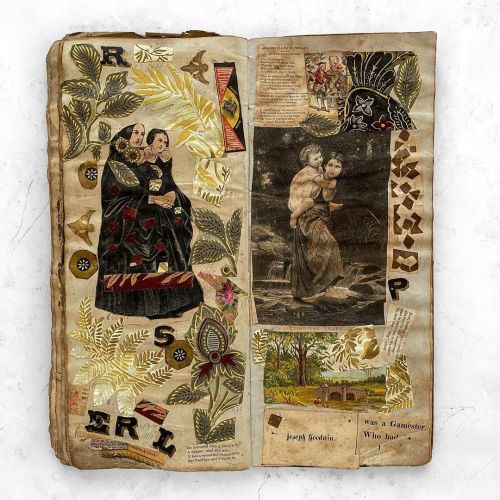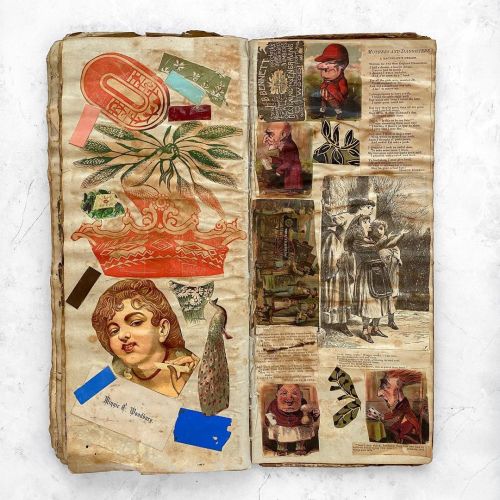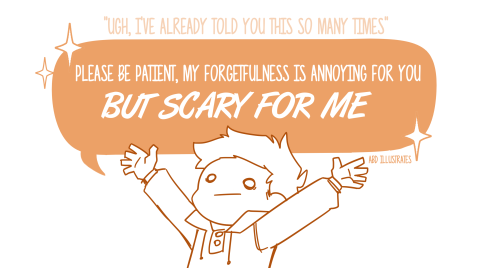
cowmate
19 | they/them
51 posts
Latest Posts by cowmate

its so embarrassing being 19 and employed 💔
The only thing worse than having a job is not having a job. And the only thing worse than not having a job is looking for a job. And the only thing worse than looking for a job is being 19 years old.

The once very popular Empire Diner.
I let my pussy make my decisions, call that clitical thinking
need

Mid-Century Radios From Genuine Plastic Radios of the Mid-Century, Ken Jupp & Leslie Piña, 1998.

“Flesh Gun” Rick Baker’s original concept Sketches, Videodrome 1982






























horror directors + their most known movie + my favorite
look at me. listen to me. this is directed at americans for the record. the reason you think North American animals are boring is because you live here. there are so many cool and beautiful animals here. we have beavers. we have wolves. we have moose. we have sea lions. we have armadillos. we have mountain lions. we have alligators. we have foxes. we have bighorn sheep. we have manatees. we have bears. we have ocelots. we have BISON. and that’s not even touching on the birds! or the turtles! or the snakes! we have amazing beautiful and diverse wildlife right here and it deserves to be appreciated and protected

she's soooo beautiful

Chameleon Gecko (Carphodactylus laevis), family Carphodactylidae, Davies Creek National Park, QLD, Australia
photograph by Wise Lum
need

Y’ever read something and have understanding that has eluded you interminably suddenly stop, curl up, and snuggle neatly into a fold in your brain because a new way way opened to it?

the list of arms and ammunition that the US has sent to Israel (which Biden is trying to hide from the public) has been leaked
rasputin didnt become a fucked up sex wizard until he was like 30. your life doesn't end at 25 <3



1962 Mac Laren’s Imperial Cheddar Cheese Advertisements Illustrators: Walter & Naiad Einsel (via: todaysinspiration/archive.org)



Pages from a scrapbook made around 1883 by Minnie C. Woodbury Goodwin
From the collection of Mandy (Paper of the Past), who posts all sorts of delicious scrapbooks and ephemera on Instagram and here
its cause youre always on that damn inaturalist
funniest part of breaking bad is that jesse lived in like three separate places over the course of the show and every single time he moved somewhere new, a character had to come in and look around and reenact this exact panel while jesse just stood there half-asleep in a 3XL t-shirt

My deepest darkest fantasy is that I collapse on the street and I am rushed to the hospital. They perform a bunch of tests and find out I am severely deficient in some kind of vitamin. Then I start taking the vitamin and I become the happiest cleverest person alive because all my problems were caused by this one deficiency




October is ADHD awareness month! 🎉
The memory issues ADHD causes are some of the scarier and more frustrating parts of living with it - so here’s a set of reaction doodles that all my fellow ADHD peeps are welcome to use whenever anybody decides to comment on your forgetfulness ^








Mark Horn (based Amsterdam, Netherlands) - China Night series, Photography
How To Write Good Dialogue (Part 1)

I'm gonna start this by saying I'm not trying to sound like a know-it-all. I am just tired of posts like these being absolutely fucking useless. I am aware this is basically me screaming into a void and I’m more than okay with that.
This guide is meant for intermediate screenwriters, but beginners are also absolutely welcome. :)
(about me)
-♠︎-♠︎-♠︎-♠︎-
I've noticed a rise in film students who want to make films that have no dialogue. Probably after your professor showed you Doodlebug, right? Fuck that.
I'll make another post about writing a short film, but all you need to know is: Don't waste the audience’s time. Most of these no-dialogue shorts have very little substance and take way too long to tell the shortest possible story. Not a good idea.
Useless Dialogue
Plain and simple, don't write useless dialogue. Useless dialogue is dialogue that just doesn't fucking matter. Dialogue matters by having ✨subtext.✨
What is subtext? Subtext is the meaning behind the action. That's it.
If I tell you that I love you and I got big doe eyes while I say it, it means I love you. If I tell you I love you through a clenched jaw without looking at you, I don't necessarily love you right now.
Simple, right? Great.
Now think about the subtext behind every line. Does your character mean what they're saying? Are they doing it to get what they want? What is going through their mind as they say it? As long as you know your character, you’ll have these answers ready to go. If you don’t, you’ll figure it out eventually. Just keep writing.
When you write your character walking into a Starbucks and saying, "One venti iced coffee," does that do something? Why do I need to see someone's boring Starbucks order? Do I need to know that your character's boring? Why are you writing a boring character? [Of course, in the rare situation where this is some revealing clue to the massive crime investigation, then it makes sense.]
Useless dialogue is any dialogue that has no meaning or purpose in your script. Delete and move on. You don't need to write entire conversations or scenes that bore us, just write what we care about.
I took a class once where my professor called a version of this "trimming the fat." Get us into your scene and out of your scene in as little time as it takes to have it achieve its full purpose in the script.
[P.S. You don’t “inject” subtext into your lines. Idk who started that vernacular in subtext teachings but I hate it.]
Show vs. Tell
I remember a glorious fight I got into with a Redditor last year about show vs. tell… TL;DR: Dialogue is “show” if you write it with intention and subtext. If someone says that dialogue is inherently “tell,” they’re wrong and can go fuck themselves.
Dialogue that is “tell” is expositional dialogue. But, hot take: Exposition isn't just in dialogue. It’s also those annoying clichés that make you roll your eyes in the theater (which we just call clichés and not exposition). I’m sure every professor I’ve had will disagree with this and then get me into a long conversation about it, but let’s ignore that for right now.
Have you ever seen a movie where a character rubs an old, worn-out photo of a young girl while looking depressed? That's exposition. That character has a dead daughter. No shit.
Clichés are incredibly annoying. We all know that. Assume that any cliché you see - in this context - is exposition and try your best not to write it. (Tropes are different and sometimes necessary, so I’m not talking about that.)
Point blank: When you have subtext in your lines, they are "show,” not “tell.”
Before moving on, I'll bring up that while technically the dead daughter photo is subtextual, it is as close to the character saying “My daughter is dead,” as you can get. Don't treat the audience like we're fucking stupid.
The First 15
If you don’t know what the Inciting Incident is, please look up “3 Act Structure” before reading this.
The first 15 pages of your script is the part that comes before the Inciting Incident. This is the part you want to get right because, although people probably won’t leave the theater, they will absolutely find something else on the streaming service they’re using. The people making said movie will also just toss your script in the trash before it’s even produced, so it's best to get it right.
Dialogue in the first 15 generally follows the same rules, but carries a heftier additional rule. All dialogue in the first 15 minutes must, must, must tell us something about your character.
Remember when I talked about that boring Starbucks order? Why is your character boring? Don’t write that. Don’t write nice characters. Or pleasant characters. Or friendly characters. No one cares.
You want empathy. This does not mean “relatable.” It means “empathetic.” There is a difference.
I personally relate to Vi in Arcane, but I empathize with Theo in Children of Men. Both are excellent, but one personally resonates a bit more with me. You cannot write a character that deeply resonates with every single person, it is impossible.
With each line of dialogue, you must be saying something about your character that generates the empathy. Instead of telling you how to do this, I’ll direct you to a movie that will do better than an explanation: Casablanca.
Watch how Rick interacts with the world. What kind of man is Rick? Watch what he does, what he says, and how he treats people and himself. Watch that empty glass on the table. Watch his contradictions. Everything. Those things matter and it’s what makes you want to watch Rick for the entire duration of Casablanca.
“Realism”
This is maybe more directorial, but make your characters human enough, not too human.
Too human is when you’ve tried your best to capture all those little life-like speech patterns. You know, the ones that no one fucking cares about.
If your character coughs, they’re sick. If they clear they’re throat, they’re uncomfortable. If a bruise isn’t going away, they’re going to die. Simple.
Every moment on screen matters. Everything the audience sees is meant to lead them to a conclusion. Not the conclusion, just a conclusion.
The realism you want is in the choices your character makes, not how many times they say “Uh,” in a sentence.
Conclusion
Dialogue matters and should not be treated lightly or without care. Once you have this all engrained in your mind, dialogue should become effortless.
If you want an excellent way to think about this, Robert McKee's Story has an excellent chapter that helped clarify this all for me. Here's an excerpt and the context.
Warning, spoilers for Chinatown.
"If I were Gittes at this moment, what would I do?"
Letting your imagination roam, the answer comes:
"Rehearse. I always rehearse in my head before taking on life's big confrontations."
Now work deeper into Gittes's emotions and psyche:
Hands white-knuckled on the steering wheel, thoughts racing: "She killed him, then used me. She lied to me, came on to me. Man, I fell for her. My guts are in a knot, but I'll be cool. I'll stroll to the door, step in and accuse her. She lies. I send for the cops. She plays innocent, a few tears. But I stay ice cold, show her Mulwray's glasses, then lay out how she did it, step by step, as if I was there. She con-fesses. I turn her over to Escobar; I'm off the hook."
EXT. BUNGALOW-SANTA MONICA
Gittes' car speeds into the driveway.
You continue working from inside Gittes' pov, thinking:
"I'll be cool, I'll be cool ..." Suddenly, with the sight of her house, an image of Evelyn flashes in your imagination. A rush of anger. A gap cracks open between your cool resolve and your fury.
The Buick SCREECHES to a halt. Gittes jumps out.
"To hell with her!"
Gittes SLAMS the car door and bolts up the steps.
Story by Robert McKee, pg 156
The context of this page is McKee's way of explaining how to write characters. I found it very helpful.
-♠︎-♠︎-♠︎-♠︎-
Thanks for reading! I probably forgot something, so I made this a “part 1.”
I hope this helps someone since I’m really tired of finding short films on YouTube that are all fucking silent. The few who have done it well have been copied to death, so please write some dialogue. I promise you it’s so much better if you do.
Asks are open! :)

I never want to hear conservatives go on about repressive censorship in China, North Korea, and Iran ever again
Want to Save the Bees? Focus on Habitat, Not Honey Bees

There has been an amazing groundswell of support for bees, motivating people everywhere to act—creating pollinator gardens, planting habitat in parks and on farms, reducing pesticide use or campaigning for citywide bans. It is clear that people care, and many have rallied around this issue.
For some, a tangible goal has been to get a honey bee hive. As a result, hives have appeared in gardens and backyards, on rooftops, and in parks and nature reserves. On the surface, this makes sense: if bees are declining, it would seem that more bees in more places will help. Yet, when we look deeper, efforts to increase the number of honey bees on the landscape may be doing more harm than good.
Read the full article here.
via The Xerces Society for Invertebrate Conservation







Liz Berube’s “Beauty on a Budget” feature that appeared in romance comics. 1960s-70s.












MOVIES VS PAINTINGS, Part III.
Shutter Island, Martin Scorsese vs The Kiss, Gustav Klimt.
Midsommar, Ari Aster vs Head of a Bacchante, Annie Louisa Swynnerton.
Shirley: Visions of Reality, Gustav Deutsch vs New York Movie, Edward Hopper.
Us, Jordan Peele vs Not to Be Reproduced, René Magritte.
The Truman Show, Peter Weir vs Architecture Au Clair De Lune, René Magritte.
Gothic, Ken Russell vs The Nightmare, Henry Fuseli.
Mad Max: Fury Road, George Miller vs Los Elefantes, Salvador Dalí.
Frozen, Jennifer Lee & Chris Buck vs The Swing, Jean-Honoré Fragonard.
The Neon Demon, Nicolas Winding Refn vs Gard Blue, James Turrell.
The Rocky Horror Picture Show, Jim Sharman vs American Gothic, Grant Wood.
macdennis - look at us, you and i, back at it again





sunny cast during the los angeles red carpet premiere of "fool's paradise", may 09, 2023
I love reading a book you are slightly too stupid for